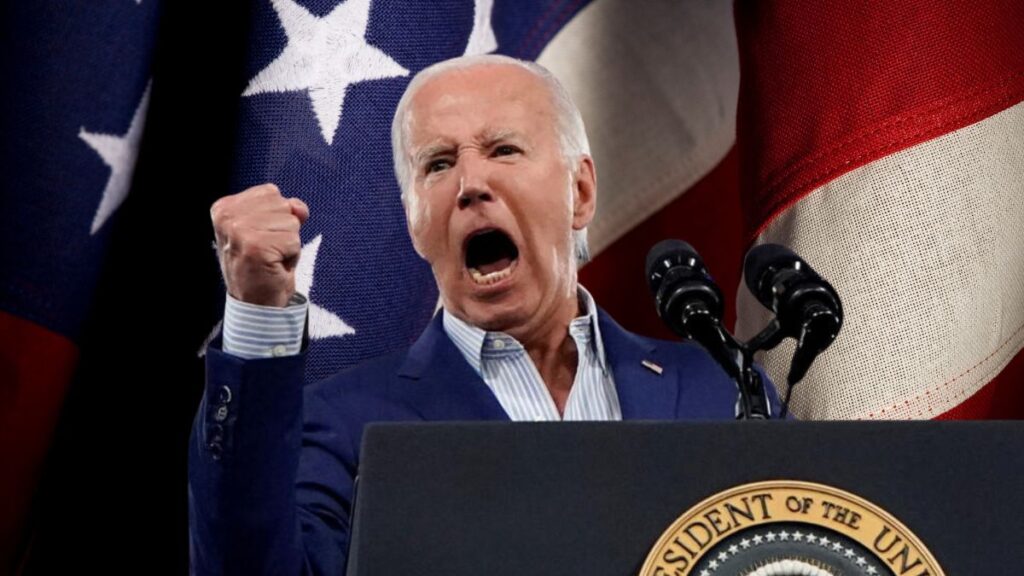President Joe Biden’s new student-loan repayment plan has encountered significant setbacks due to recent federal court rulings. On Monday, judges from Kansas and Missouri district courts issued rulings on two separate lawsuits. These lawsuits were filed by GOP state attorneys general who aimed to block the SAVE income-driven repayment plan. This plan, introduced last summer, was designed to reduce borrowers’ monthly payments.
Earlier this year, the Education Department began implementing a key provision of the SAVE plan ahead of schedule. This provision canceled student debt for borrowers with original balances of $12,000 or less who made at least ten years of qualifying payments.
The attorneys general argued that this relief was unconstitutional and requested that both the relief and the overall plan be blocked.
The Missouri court, in particular, ruled on a lawsuit led by Missouri Attorney General Andrew Bailey. The court decided that the Education Department can no longer proceed with student-loan forgiveness via the SAVE plan as the legal process continues.
Here are the key points from the court rulings:
- The SAVE plan was introduced to lower monthly payments for borrowers.
- A provision of the SAVE plan aimed to cancel student debt for certain borrowers.
- Federal courts in Kansas and Missouri issued rulings to block the implementation of this plan.
- The Missouri court specifically ruled that student-loan forgiveness through the SAVE plan must be halted during the ongoing legal proceedings.
These rulings represent significant obstacles for the Biden administration’s efforts to provide relief to student-loan borrowers. As the legal battle continues, the future of the SAVE repayment plan remains uncertain.
The recent ruling maintains borrowers’ abilities to enroll and make payments through the plan.
Preserving Borrowers’ Interests
“These borrowers have already made payments under the program, have already had those payments calculated under the early implementation of certain provisions of the Final Rule, and some borrowers anticipate imminent forgiveness,” the ruling states. “These borrowers and the public have an interest in ensuring consistency in loan repayment programs, and any preliminary injunction would harm their expectations of such consistency.”
Response from the Department of Education
The Department of Education did not immediately respond to a request for comment from Business Insider.
Kansas Court’s Decision
Meanwhile, the Kansas court ruled to maintain actions the Education Department had already implemented through the SAVE plan. However, it decided to halt the new provisions that were set to take effect on July 1, which included cutting payments for undergraduate borrowers in half.
On June 30, a pivotal ruling in Kansas is set to take effect, leaving millions of student loan borrowers in a state of uncertainty.
Understanding the Preliminary Rulings
Both of the recent rulings regarding student-loan forgiveness are still preliminary. While forgiveness is currently blocked, the courts have not yet delivered their final decisions.
The Voice of Advocacy
Mike Pierce, the executive director of the advocacy group Student Borrower Protection Center, expressed deep concern over the situation. In a statement, he highlighted the confusion and uncertainty faced by borrowers:
“Millions of borrowers are now in limbo as they struggle to make sense of their rights under the law and the information being provided by the government and their student loan companies,” Pierce stated.
The Kansas Ruling
Judge Daniel Crabtree, who issued the Kansas ruling, had previously shown skepticism regarding the GOP attorneys general’s case. On June 7, he determined that only three of the original eleven states had standing to challenge the plan.
As we await the final decisions from the courts, the fate of student loan forgiveness and the clarity needed by millions of borrowers hang in the balance.
